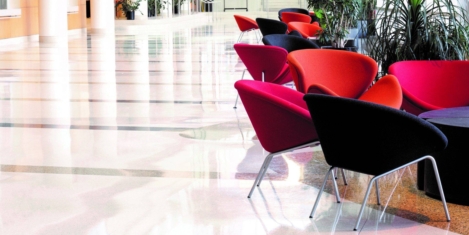January 10, 2017
Report calls for ‘workplace guardians’ to support employee wellbeing 0
Businesses need to shift their focus away from functional issues, such as cost per square metre, and towards the productivity boost that can be delivered through well-designed work spaces which engage employees and make them feel valued. This is according to a new study produced by Interserve, Designing and delivering effective workplace experiences – a practical guide, which argues employers should adopt teams of ‘workplace guardians’ to curate work spaces that support employee wellbeing and overall business performance. The report sets out a six-stage programme for businesses to create effective workplace experiences which it says should be led by a team of experienced workplace coordinators or ‘guardians’ – a process that sees workplaces shaped by employees, for employees. (more…)


































December 12, 2016
Can an organisation simply buy employee motivation? 0
by Matias Rodsevich • Comment, Workplace
(more…)